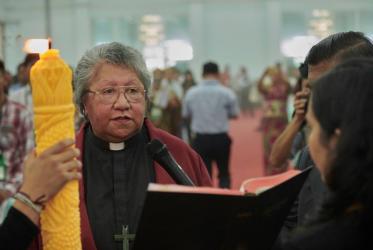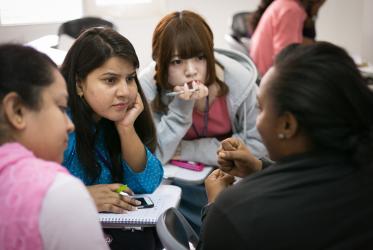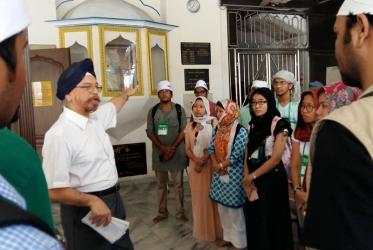Displaying 1 - 20 of 34
Dr Abuom reflects on women of faith as healers of creation
05 October 2021
South Sudan Church leaders welcome new cabinet
15 March 2020
African women embark on pilgrimage in Burundi
29 November 2017
Women in development create space for hope in Egypt
15 June 2017
Jewish-Christian relations highlighted in latest Current Dialogue
29 November 2016









